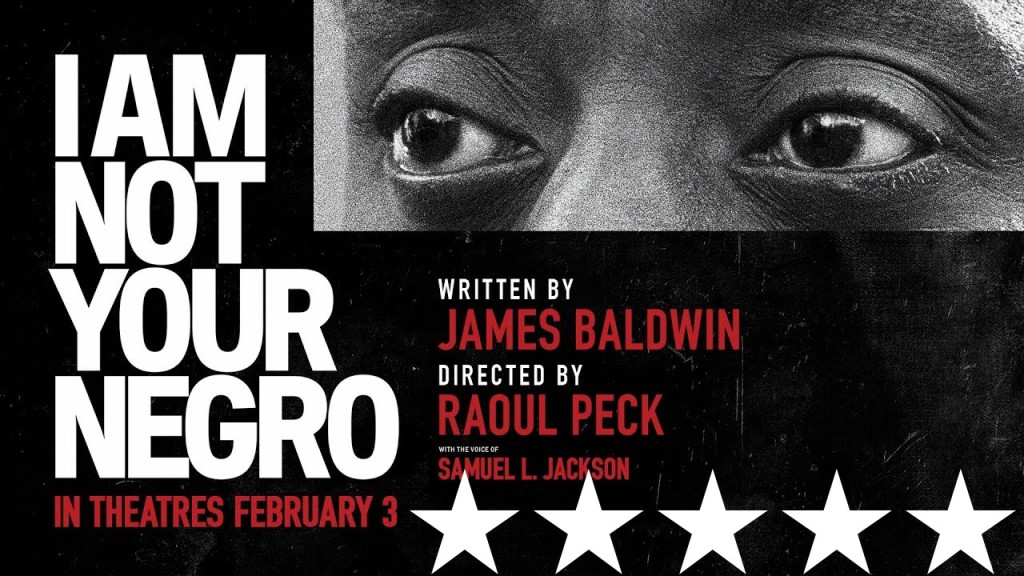Most of the time I’ve spent ‘writing’ this review has actually been spent researching James Baldwin. Reading extracts from his essays, novels, plays; watching him appear on the talk shows that the film extracts from; that famous 1965 Cambridge debate with William F. Buckley Jr. to whom the film rightly does not give a voice.
I was aware of Buckley, of course, as an object of scorn, from the 2015 documentary Best of Enemies, regarding the infamous 1968 national convention debates opposite Gore Vidal. I remember a podcast I listen to several years ago now getting into conversation about the unpleasant man, using his debate with Baldwin as an example of his rhetorical laziness. At the time I skipped over James Baldwin’s remarks, only interested in the words of the white man already deemed inferior. My own white ignorance never ceases to make me feel ashamed.
I wonder now which social philosophers I am currently ignoring. I am never as well read as I wish to be, but in truth I only have myself to blame in that regard. My 22 year old intolerances, I am sure, will shock an older me; I imagine even more so when I discover a contemporary writer, years ahead of their time.
I Am Not Your Negro is credited as being written by James Baldwin. Adapted by director Raoul Peck it takes material from the notes of his unfinished final work Remember This House. An essay about his history, the history of his America as seen through the deaths of his associates, the murdered civil rights leaders: Medgar Evers, Malcolm X, and Martin Luther King.
Read by Samuel L Jackson, the film uses its images to occupy the writing, become a rallying force, demonstrating to us visually the concepts Baldwin lays down. The writing may be unfinished but it is tender and delicate and heartfelt, capable of moving me to tears. It is the film’s soul, everything else is argumentation, demonstrating and reinforcing the ideas that were never finished. Reminding us that Baldwin’s America is scare different from today’s.
In my screening of the film there was, quite often, laughter. Usually when some image of racial hatred seared on the screen. As you may expect from a British art cinema at three in the afternoon, it was all white people there. I dislike that laughter. It speaks of disassociation, of reserve. The images here are something apart from me. They laugh because of the fear: what the image represents is so ground down deep into them that there is no way to extract it from themselves and themselves from it.
Audience flinch at the violence enacted by white bodies upon black ones, in the sixties, seventies, eighties, nineties, the thousands and ‘teens. When it is physicalized, when we see the clubs and the blood we are horrified. The film reminds us that this is not the only form of violence that we subject upon minority groups. That the concept of whiteness is indistinguishable, as Baldwin states in that debate, from the oppression and division it serves to create.
I Am Not Your Negro is a beautiful, compassionate, heartfelt, perfect portrait of a singular man. His ideas and his identity. When I fail to educate myself, I can be forever thankful that there are people like Raoul Peck; people who are willing, and able, to educate others.
Watch this film.

Image courtesy of Magnolia Pictures

Leave a comment